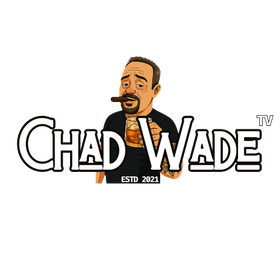If you think hiring someone just to “cover shifts” is enough, you’re already losing. A smoke shop isn’t babysitting inventory—it’s a retail business. Every person behind your counter is either making you money or draining you dry.
Too many shop owners hire whoever applies, cross their fingers, and then wonder why sales are flat, shrink is rising, and customers don’t come back. That stops today. Here’s the no‑BS guide to building a team that actually grows your business.
Why the Wrong Hire Costs You More Than You Think
-
Lost sales. A dead‑eyed cashier doesn’t upsell, doesn’t engage, and doesn’t care. That’s thousands left on the table every month.
-
Shrink and theft. Weak hires are either sloppy or sneaky. Either way, money disappears.
-
Customer churn. People don’t remember your shelves—they remember how they were treated.
-
Owner burnout. Every bad hire drags you back into the store to cover, clean up, or micromanage.
Hiring isn’t a box to check—it’s your biggest leverage point.
Step 1: Define Who You Actually Want
You’re not looking for “anyone who needs a job.” You’re looking for retail soldiers who can move product, respect rules, and show up on time.
Core Traits of a Smoke Shop A‑Player:
-
Personality: Friendly, confident, not awkward around strangers.
-
Work ethic: Hustles when the store is empty (faces shelves, cleans counters).
-
Sales mindset: Sees products as solutions, not just “things to ring up.”
-
Integrity: Won’t pocket $20s or hook up their buddies.
-
Coachability: Follows systems, adapts when corrected.
Bonus Traits:
-
Product knowledge or passion. Not required—but nice to have if they can actually sell, not just geek out.
-
Social media savvy. A staff member who can post content is a cheat code.
Step 2: Write the Job Ad That Filters
Stop with the lazy “Smoke Shop Hiring – Apply Inside” sign. That attracts warm bodies.
Your ad should:
-
Highlight responsibility and standards (“Must be reliable, must upsell, must handle cash with accuracy”).
-
Warn off flakes (“No‑shows = immediate termination”).
-
Sell the upside (“Fun retail environment, loyal customers, growth opportunities”).
Think of it like fishing bait. You don’t want every fish. You want the right fish.
Step 3: Interview Like an Owner, Not a Buddy
The interview isn’t “Can I stand to talk to them for 10 minutes?” It’s: Will they make me money or lose me money?
Ask:
-
“Tell me about a time you had to sell something.” If they can’t, that’s a red flag.
-
“What would you say if someone only asked for papers?” (Correct answer = suggest tips, lighter, tray).
-
“How do you handle rules you don’t like?” Watch their face, not just their words.
-
“What’s the last job you left, and why?” Excuses = excuses in your store too.
Bonus test: give them a pen and say, “Sell me this.” You’ll know in 60 seconds if they’ve got it.
Step 4: Trial by Fire (Probation Period)
Never fully commit to someone until they prove it. Use a 30‑day probation window:
-
Track punctuality.
-
Track sales per shift and upsells.
-
Track compliance (do they follow the checklist without whining?).
If they don’t hit minimums, cut fast. The longer you wait, the harder it gets.
Step 5: Keep the Standards High
Good employees don’t stick around if you tolerate garbage coworkers. Your standards set the tone.
-
Post daily numbers (avg ticket, upsell rate, shrink).
-
Recognize top performers publicly.
-
Fire bad ones fast—nothing motivates like seeing slackers removed.
A‑players want to play on A‑teams.
Step 6: Pay Right, But Don’t Overpay
You can’t pay minimum wage and expect killers. At the same time, money doesn’t fix laziness.
-
Start with a competitive base.
-
Add performance spiffs ($10 for best upsell rate, $25 gift card for weekly top seller).
-
Tie raises to actual performance, not tenure.
Make pay a scoreboard, not a handout.
Red Flags That Should Stop You Cold
-
Constant job‑hopping. If they can’t hold a job for 6 months, why would yours be different?
-
Over‑focus on discounts. If their first question is “Do I get a discount?”—that’s all they care about.
-
Victim mentality. “My last boss was unfair” = you’ll be the next “unfair” boss.
-
Energy mismatch. Retail is energy. If they look like they need a nap, they’ll tank your floor.
The Final Word
Your team will make or break your smoke shop. You don’t need bodies—you need closers. People who show up on time, sell like it matters, and protect your money. That takes clarity, high standards, and fast cuts when someone doesn’t measure up.
Stop hiring warm bodies. Start building killers. That’s how you run a smoke shop that grows without you babysitting it.
Want more playbooks on systems, hiring, and scaling? Get them all at ChadWadeTV.com.

